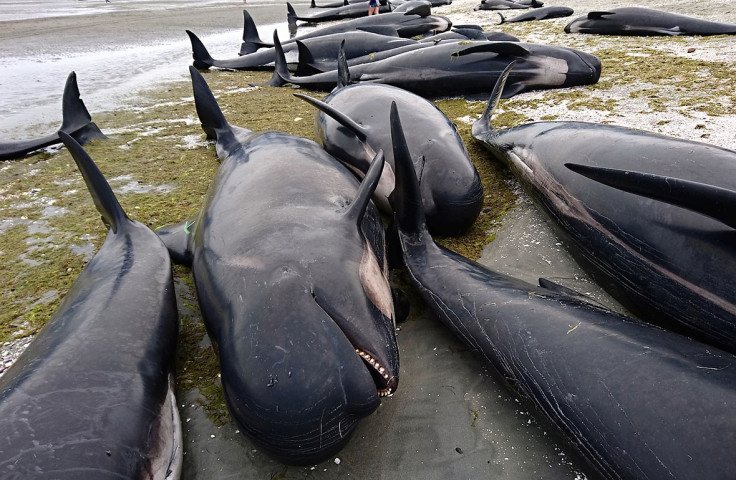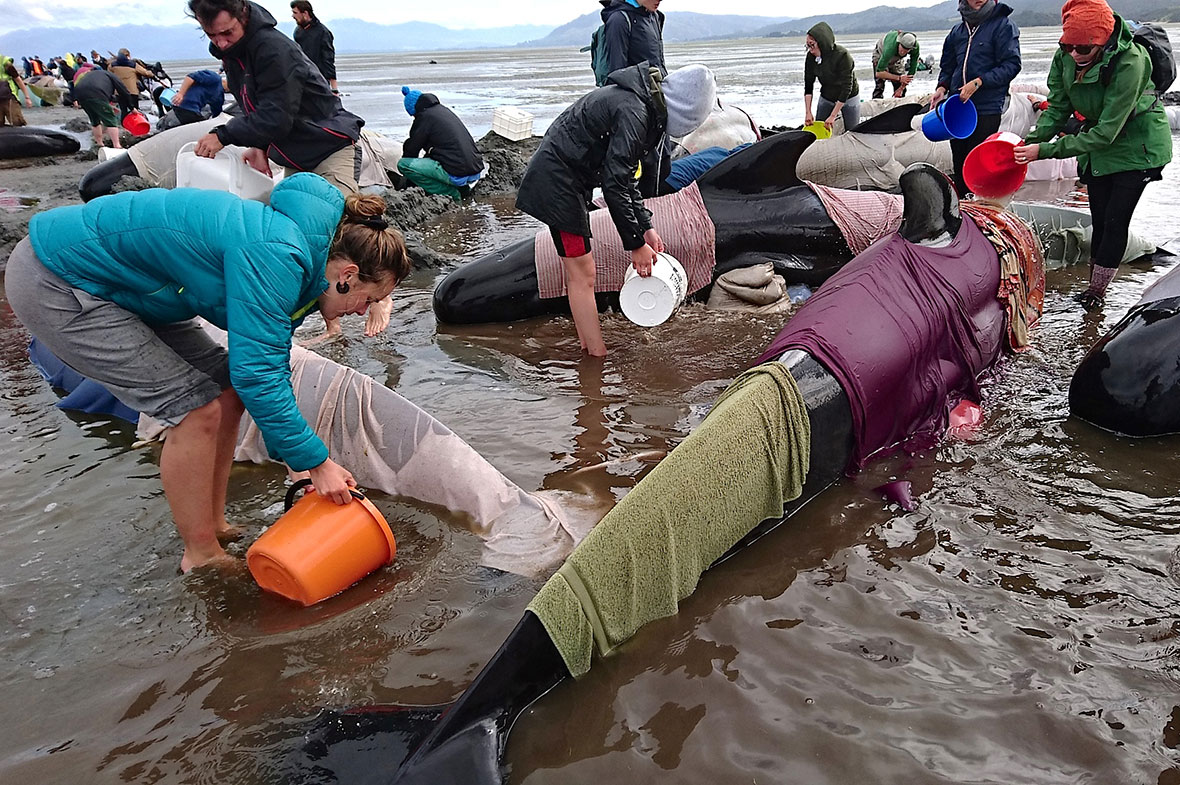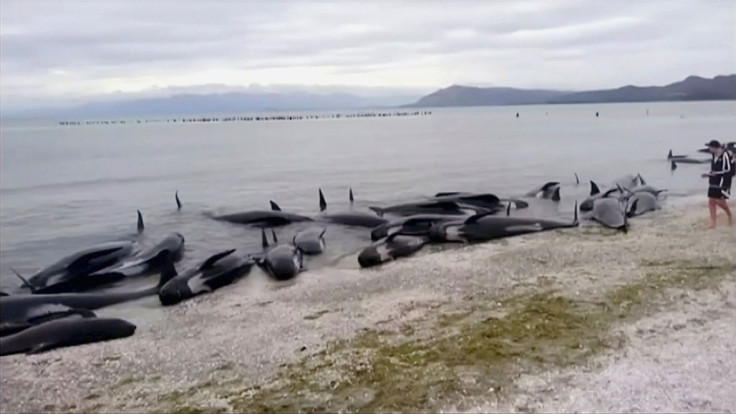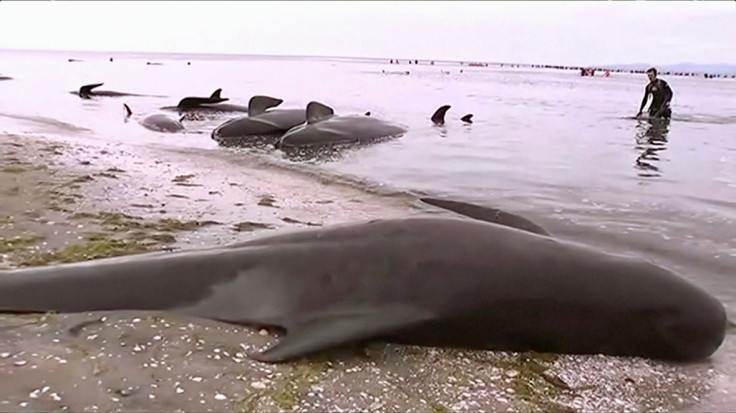New Zealand: 400 whales wash up dead in 3rd largest mass beaching in country's history
Volunteers worked to try to rescue the pilot whales but most died quickly after being beached.
Almost 400 whales have died following New Zealand's largest ever mass beaching. Around 70% of the 416 pilot whales have already died, with volunteers working to try to rescue the remaining.
The Department of Conservation said the whales swam ashore at Farewell Spit on the north of South Island. Spokesman Herb Christophers told AFP that because there were so many carcasses, the 500 volunteers were struggling to get those left alive into the water.

"The dead ones that are floating around out there are obstructing their course out to sea," he said.
Over 100 whales were re-floated at high tide, but most had swum back to shore – whales are known to swim back to beaches after being rescued to try to re-join their pods. While volunteers continue with the rescue effort, the outlook for the remaining whales is poor.
Andrew Lamason, regional manager of the Department of Conservation, told Radio New Zealand: "With that number dead, you have to assume that the rest are in reasonably poor nick as well. So we're sort of preparing ourselves for a pretty traumatic period ahead."
This is New Zealand's third biggest mass whale strand. The largest took place in 1918 when 1,000 whales washed up at Chatham Islands. In 1985, 450 were beached in Auckland.


The cause of mass strandings is still not well understood, with many factors playing a role. When single individuals wash up, it is normally because they are sick or injured. However, for larger numbers, the reasons are less clear.
Harmful algal blooms can result in whole pods being beached, while disease events are also considered a common cause. The use of high-powered sonar in naval exercise has too been implicated in the past.


But sometimes mass strandings occur for no apparent reason. David Lusseau, a professor of behavioural biology at the University of Aberdeen, said this is often seen in pilot whales. "This has puzzled biologists for centuries: why would a healthy animal put itself in such danger if there is no reason to? Is it possible that they are deliberately harming themselves? Even attempting suicide?" he said.
"Pilot whales live in matrilineal societies. They spend their lives in schools that are composed of extended families centred around the females – mothers and their daughters are the family focal points.


"Based on this social structure, the common assumption has long been that healthy animals strand themselves as an altruistic gesture, that they do so to continue caring for distressed family members. Recent work, however, casts doubt on this analysis, with genetic tests showing that animals stranded close to each other during mass events may not be related after all."

He added that while this social caring hypothesis is generally favoured, in truth we still do not really know what causes mass whale strandings. "These individuals strand to stay in contact with their sick or injured companions, whether relatives or otherwise. What we don't fully understand are the mechanisms behind this. These can range from simple 'hardwired' instincts to complex behaviours, which may allow them to reflect on the needs of other members of their group, even act altruistically. The truth probably lies somewhere in between."

© Copyright IBTimes 2025. All rights reserved.






















